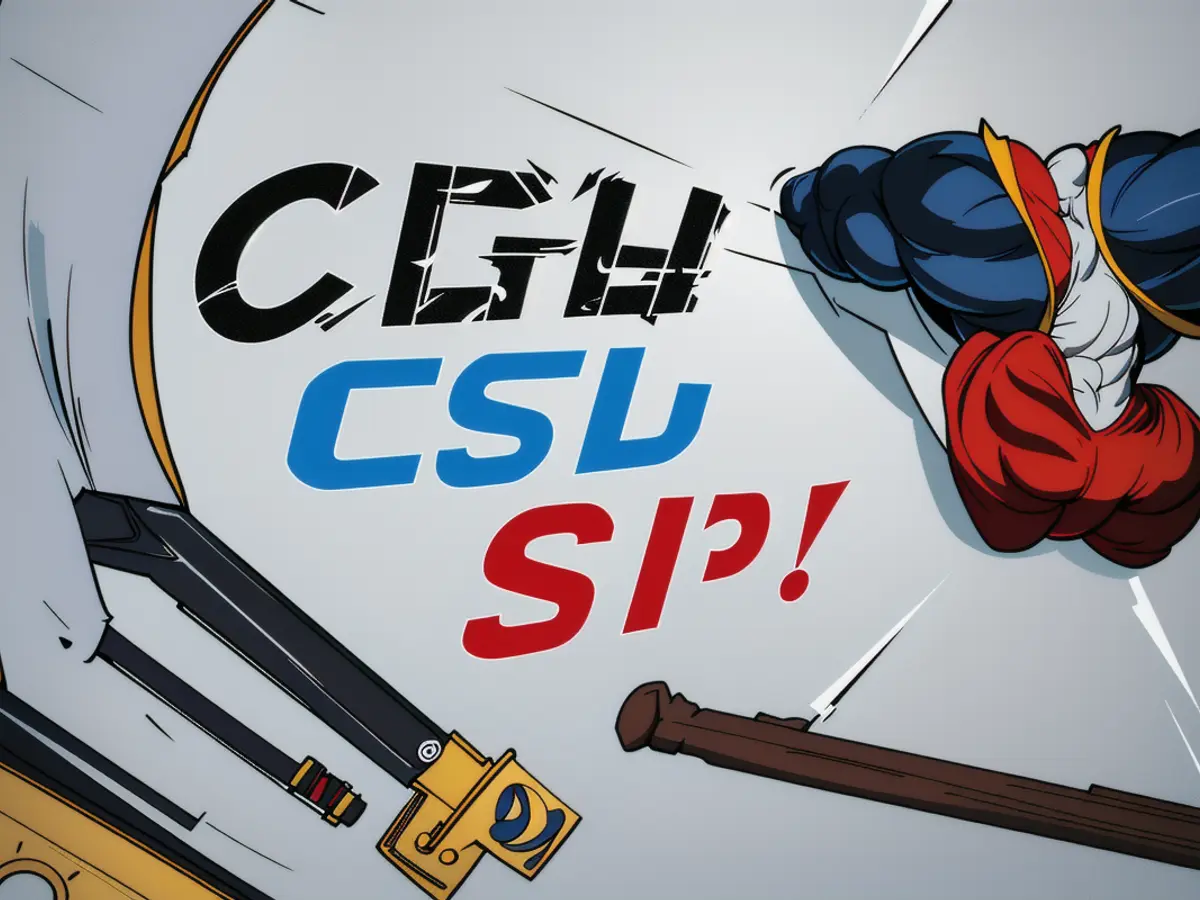Coalition Talks: Unraveling the Key Sticking Points
- Outcomes from collective efforts of working teams
The first round of coalition talks between the Union and the SPD is winding down, with the deadline for working groups to submit results looming at 5:00 PM on Monday. Due to recent disagreements, the consolidation and review of submitted materials will be crucial to resolving the issues at hand.
Subjects like taxes, social policies, and migration have stirred up considerable debate. Contentious topics such as the demand for legalizing first-trimester abortions and strategies for managing irregular migration remain highly controversial.
However, progress has been made in the area of state modernization and bureaucracy reduction. All parties appear to agree on the need to reform the Federal Police Act, establish a legally enforceable obligation for storing IP addresses, and protect critical infrastructure facilities – in line with EU requirements.
As we move forward, the so-called 19-er round will convene. This group consists of party leaders and influential members - including CDU General Secretary Carsten Linnemann and Defense Minister Boris Pistorius (SPD) – who will discuss potential solutions to the largest disagreements.
The goal set by CDU chairman Friedrich Merz of forming a black-red government by Easter remains a target, though some within the Union question the wisdom of adhering to a strict timeline.
Debates persist over the allocation of the additional financial leeway secured with the Green party. While some funds will go towards important sectors such as defense, cybersecurity, civil defense, and climate protection, disputes linger on the specific use of these funds and the nature of proposed tax relief.
The reshuffling of ministries and the appointment of key personnel will occur only once contentious issues are largely resolved. The establishment of a possible integration between the Development Ministry and the Foreign Office is among the ongoing speculation.
In the meantime, individual factions are tackling key personnel decisions. The Greens, for example, are set to elect their new faction chair on Monday, with Katharina Dröge and Britta Haßelmann vying for the position. The Greens will also decide on a nominee for the Vice President post, with Omid Nouripour, Katrin Göring-Eckardt, and Claudia Roth expressing interest.
The results of these negotiations will significantly impact the political landscape in Germany, setting the stage for potential reforms, investments, and government policies aimed at addressing pressing domestic and international concerns.
Keep up with the latest news and insights from Berlin's political scene! Sign up for our free capital newsletter today.
Key Terms:- Coalition Negotiations- SPD- CDU- Union- Bundestag- Weekend- Coalition Agreement- Easter- Bundestag Presidency- Taxes- Social Policies- Migration Policy- EU Requirements
Enrichment Data:
Current Status of Coalition Negotiations
The ongoing coalition negotiations between the CDU/CSU and the SPD in Germany have generated intense discussions on several pressing topics. Here's a summary of the key sticking points and potential solutions to the major disagreements:
Topic 1: Migration Policy
- Current Standpoint: The most divisive issue is migration policy, with the CDU/CSU advocating for stricter border controls and faster deportations for migrants facing criminal sentences [5].
- Possible Resolution: A potential resolution is to implement stronger migration policies, including increased detention capacity and expanded lists of safe countries for deportation, reflecting the impact of the AfD's electoral gains [5].
Topic 2: Fiscal Policies and Taxes- Current Standpoint: Differences exist on fiscal policies, with the CDU/CSU emphasizing tax cuts and reducing bureaucratic inefficiencies [2]. However, they recently agreed on a substantial borrowing package for infrastructure and defense [3].- Potential Resolution: Though specifics are still unclear, this financial package suggests an agreement on broad economic policy directions between the CDU/CSU and the SPD [2].
Topic 3: Social Policies- Current Standpoint: The SPD focuses on issues such as wage agreements, pension reform, and social welfare measures. Internal pressure on the CDU/CSU to maintain conservative values culminates in concerns over potential cuts to welfare and social services [3].- Potential Resolution: A compromise might result in incremental reforms addressing both progressive social policy demands and conservative fiscal discipline.
Topic 4: EU Requirements for Critical Infrastructure Protection- Current Standpoint: Discussions on specific EU requirements have not been widely publicized, as the primary focus remains on domestic policies.- Possible Resolution: This aspect might not be a significant point of contention but could emerge as part of broader talks on EU policies and international collaboration.
The Commission's proposal for a directive on the protection of workers from the risks related to exposure to ionizing radiation may intersect with the ongoing coalition negotiations. As the 19-er round commences, key party leaders and influential members like Carsten Linnemann (CDU) and Boris Pistorius (SPD) will discuss solutions to the largest disagreements, such as migration and fiscal policies. During the weekend, the Greens will elect their new faction chair and decide on a nominee for the Vice President post, potentially shaping the outcome of the coalition agreement. Despite progress in areas like state modernization and bureaucracy reduction, addressing these key sticking points is essential to achieving a black-red government by Easter.









